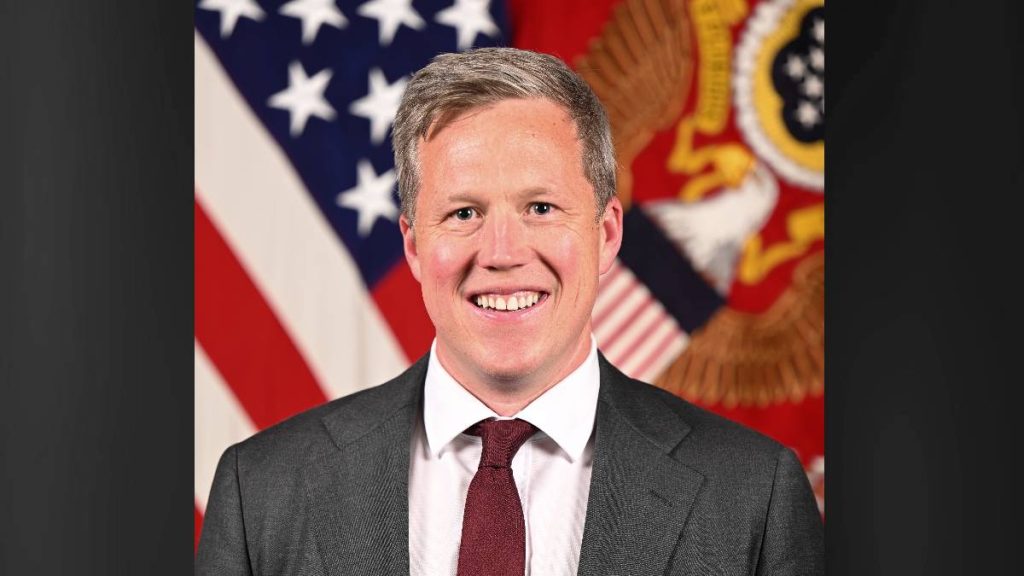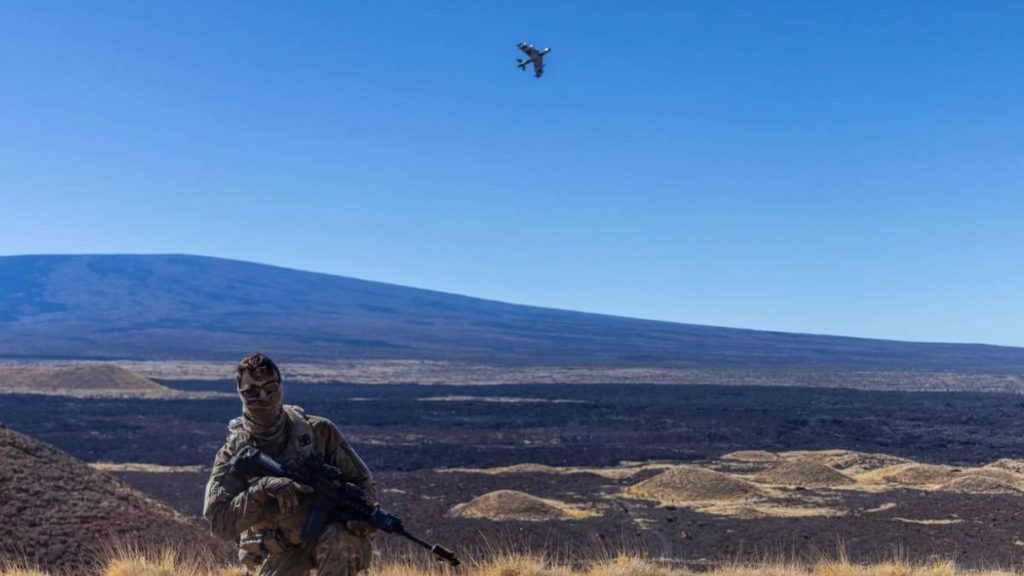Secretary of the Army sends letter to Gov. Green urging progress toward extension of state land leases on Big Island, Oʻahu
Following a recent visit to Hawaiʻi, Secretary of the Army Dan Driscoll sent a letter to Gov. Josh Green on Thursday morning expressing interest in resolving issues about the military’s leases that are set to expire in 2029 on state land on Hawaiʻi Island and Oʻahu.
“We want to work with you to come to a mutually acceptable framework by the end of this year that will allow us to move forward,” Driscoll wrote. “Working together and with congressional support, we believe land exchange can be part of this framework.”

But it is the Hawaiʻi State Board of Land and Natural Resources that has the sole authority to renew the Army’s land leases. The governor cannot override the board’s decision, according to an email from the communications team at the state Department of Land and Natural Resources.
The governor’s office acknowledged in a news release on Thursday that it is playing a “facilitating role” and that any formal exchange would ultimately require the Board of Land and Natural Resources action and compliance with state law.
The Governorʻs office said the concept of a land exchange has been raised as one possible option, but no specific parcels have been identified and no official conversations on parcels have occurred to date between Green and Driscoll.
But Green said in the press release: “Federal leaders have stated there are national security considerations at stake and they’ve made clear they could act through eminent domain, which would take the land without giving Hawaiʻi anything in return.”
The original lease for the Pōhakuloa Training Area on Hawaiʻi Island was signed in 1964 for just $1.
Green said he is “insisting on a fair deal.”
“For example, the return of lands like Mākua Valley, cleanup of contaminated training areas, protection of our water and a commitment to build thousands of new homes to relieve pressure on our housing market,” Green said. “I’m also pushing for lands that can be transferred to the Department of Hawaiian Home Lands, so more Native Hawaiian families have the opportunity of homeownership. And I want the military to invest in renewable energy and safer infrastructure to lower costs for our people.”
But the state Land Board and community members are concerned about the environmental impacts of bombing and other military action to the land and native species.
In May, the Board of Land and Natural Resources voted not to accept the U.S. Army’s final Environmental Impact Statement at the Pōhakuloa Training Area. The Army is seeking to return nearly 3,300 acres of Pōhakuloa leased lands back to the State of Hawai‘i and retain 19,700 acres in a new agreement with the state to sustain its mission there.
In June, the Board also voted not to accept the U.S. Army’s final Environmental Impact Statements for more than 6,000 acres of state-owned land at the three sites leased on O‘ahu: portions of the Kahuku Training Area, the Kawailoa-Poamoho Training Area and the Mākua Military Reservation.

In July, Hawai‘i County Council Member Rebecca Villegas drafted a resolution urging the military to cease bombing at Pōhakuloa Training Area. On Tuesday, the councilʻs Policy Committee on Environmental and Natural Resource Management moved forward with a positive recommendation of Resolution 234-25 after hearing public testimony that was overwhelmingly in support of it.
Community members adamantly expressed frustration in public meetings with the Hawai‘i County Council and the Board of Land and Natural Resources about their unheard concerns over the years of bombed lands, unexploded ordnances and depleted uranium around Pōhakuloa.
“While some may say we are being too accommodating, the truth is this path ensures that Hawaiʻi’s people and values come first,” Green said. “By negotiating firmly and fairly, we can secure real benefits for our future while maintaining national security.”
While Driscoll recognized in the letter the importance of these lands to the people of Hawai‘i, he said the Army training lands in Hawai’i also are vital to U.S. national security interests.
“Hawai’i has been generous in its support for the Army and has leased numerous lands to us over the past 65 years,” Driscoll wrote. “These lands are critical to the Army’s ability to project U.S. power in the Indo-Pacific, serving as a vital logistics hub for rapid troop deployment.”
In the letter, Driscoll did not detail what was meant by “land exchange” that he thought could be part of an agreement.
According to the Department of Department of Land and Natural Resources, the board has not reviewed or received a copy of Driscoll’s letter. Board members also were not involved in conversations between Green and Driscoll when the Secretary of the Army was in Hawaiʻi, according to the Department of Land and Natural Resources.
Army officials describe Hawai‘i as a gateway to the Indo-Pacific that plays a “pivotal role” in supporting the Army’s mission to maintain peace and stability in the region.
The U.S. Army Pacific stands ready to support this process and work collaboratively to build a mutually acceptable framework that balances the Army’s needs with the values and priorities of Hawai’i’ people, according to a press release from the military issued this morning, according to the Army.
“I look forward to working with you to finalize this framework,” Driscoll stated. “It is imperative that we move quickly to resolve this issue now. We cannot wait, as our Nation depends on its Army to always be ready.
“While we always hope for peace, we must plan for war, and these lands are vital to supporting training and ensuring warfighter readiness across Army Active Duty, National Guard and Reserve Soldiers in Hawai’i. To lose access to critical training lands would be detrimental to U.S. national security and create a vulnerability that we, as a Nation, cannot afford.”
While some may say we are being too accommodating, the truth is this path ensures that Hawaiʻi’s people and values come first,” Governor Green said. “By negotiating firmly and fairly, we can secure real benefits for our future while maintaining national security.”
The Governor’s office said it will continue discussions with the Army and federal leaders, and it will keep the public informed as negotiations progress.
At the end of this month, the state will launch a new public website to provide transparency throughout this process. The site will include formal documents received from the Army, background on the leases and updates as discussions progress.
The Office of the Governor will provide further updates, including the state’s formal response to the Army, in the weeks ahead.



